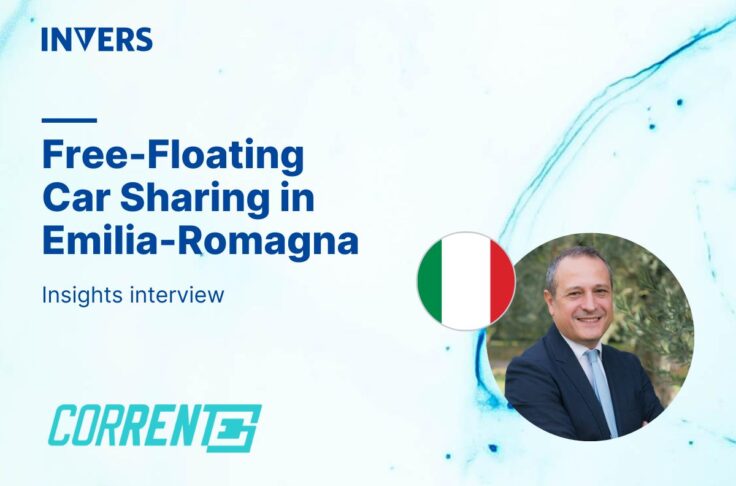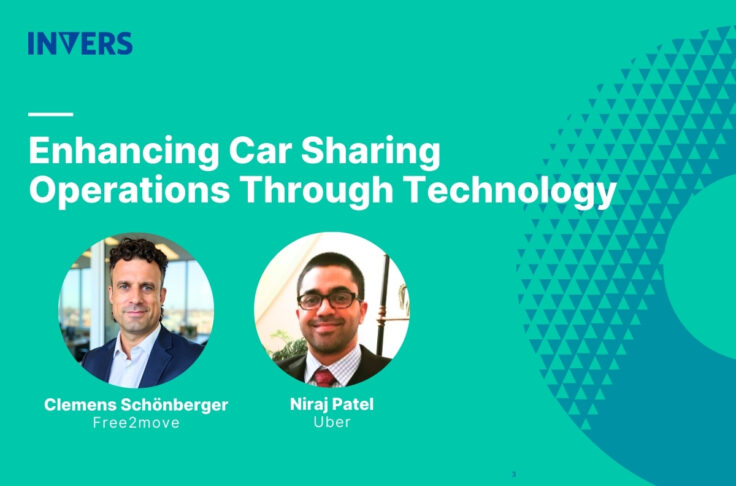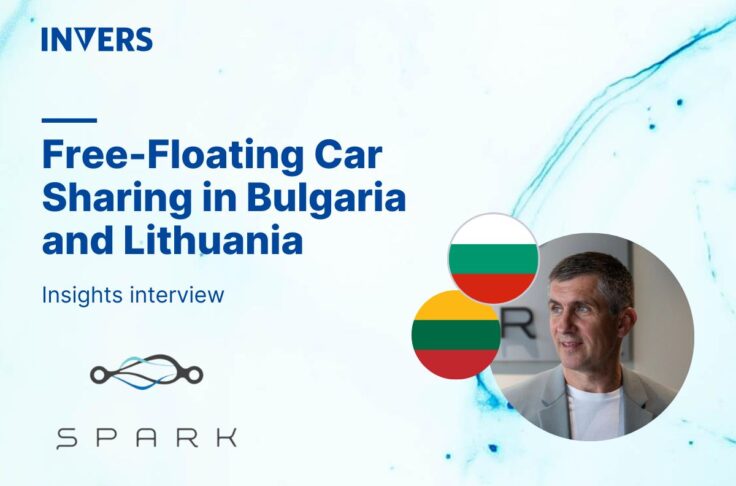
MILES
MILES Mobility, launched back in 2016, is now the largest independent car sharing provider in Germany and charges by the driven kilometer, not by the minute. Its offering includes car sharing, van sharing and rates for flexible daily rentals – all available in a stationless free-floating system. MILES meets a range of consumer needs due to its diverse vehicle pool including the VW Polo, VW ID.3, Audi A4 Avant and Mercedes Sprinter. The company is active in Berlin, Hamburg, Munich, Cologne with over 3,000 vehicles in their fleet.
MILES believes in a world where mobility is shared, sustainable, and accessible to everyone, and its offering creates an alternative to private car ownership. The goal is to be part of the personal mobility mix and improve urban life. MILES’ vision is to make every driven mile a shared mile.
In this interview we sat down with Oliver Mackprang, CEO of MILES to get some interesting insights into their business success.

What makes MILES different to other free floating car sharing services?
At MILES, we look at car sharing from the user’s perspective – it is the mix of our rate and vehicle offers that makes it valuable to our users to choose car sharing over private vehicles.
And our pricing model is unique. Paying for kilometers and not minutes takes the time pressure out of the equation and makes using car sharing a more stress-free experience for our users, while also making the trip and billing more predictable and transparent.
Is your pricing model not less profitable than the standard car sharing pricing approach?
Not necessarily. In the end, the cost setup has to be calculable, plannable and measurable. And that is how we have set up not only our cost structure, but also our business, in order to make it work for us.
In fact, we just reported a break-even in 2020. MILES nearly quadrupled its revenue from EUR 5.7 million in 2019 to EUR 20 million in 2020 and crossed the threshold to profitability in October 2020. This was achieved despite COVID-19, where almost the whole world was advised to stay at home. We are really proud of being the only car sharing service in Germany to achieve this huge milestone. This was mainly possible due to our holistic view of the industry and our use-case driven approach.
How is MILES’ tech stack setup?
In August of 2020, we launched our inhouse-developed sharing software and user-facing app. we wanted to gain more flexibility and independence to prioritize our own product features and needs, bug fixes, and growth pace. Another key factor in this decision was being able to differentiate ourselves from our competitors who used the same turnkey white-label solution. We are a very agile company, and this allows us to move at the pace that we want, while enabling us to create unique user experiences.
When it comes to our hardware, on the other hand, we have been using the INVERS telematics solution from back when we had a fleet of 200 to now with over 3000 vehicles. INVERS is a critical component to our business. What sets INVERS apart from other options out there is the continued development of the diagnostics and the adaptability of its API services and telematics solutions with different makes and models of vehicles. With INVERS, we have reliability and dependability. INVERS is blended into the core of our business, which is agile, so this reliability is key. Furthermore, it is easy to read the status of vehicles and track the issues.

What are MILES’ growth plans going forward?
Our main focus for growth decisions has always been based on economical sustainability. At the moment, there are other cities we would like to tap into within Germany; we don’t think now is the right time to expand internationally. The opportunity cost should outweigh the investment and risks. In the future, we can think about perhaps starting with neighboring countries, but that is not something we have on our agenda at the moment.
Furthermore, we have just launched electric vehicles and definitely want to keep a focus on that. Although this development also depends on some overall framework conditions, like the charging infrastructure, charging time, and costs, as well as the cities’ individual handling of electric vehicles such as with parking fees. As mentioned before, ecological sustainability and economic sustainability must go hand in hand.
On a different note, what made you interested in the mobility space in the beginning? What advice would you give to somebody who wants to get into the shared mobility space as a start-up?
Mobility has such a social and communal impact, that’s what intrigues me the most. If you take a look at the list of most desired cities to live in, they are the ones that mobility has been made super accessible to everyone. For example, most Scandinavian countries, Switzerland, and some Southeast Asian countries. Mobility is a core aspect in urban life.
My advice for start-ups would be that before they start their business, they really understand the decision-making process of a customer. This is not to be taken lightly. Take into consideration all the aspects that influence this decision such as disposable income, age, etc. A famous quote from Bill Gates fits in here: “Most people overestimate what they can do in one year and underestimate what they can do in ten years.” There is so much that influences a person’s decision on how to get from A to B. Don’t underestimate the user journey in the business planning equation.
Any last thoughts you want to share?
The entire mobility industry will work much better and smoother if everyone in the space works together more. Understand the pain of one another and see how they can support each other.
The market is big enough for everyone, and everyone can grow. This thought of one player taking over the whole market, or winning over others, this is just not feasible and also not good for the industry.


